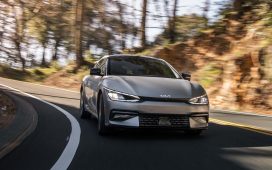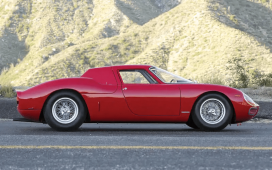China is reportedly replacing most of its automotive showrooms and car dealerships with electric vehicles from Chinese automaking giants, most notably models from Geely.
According to the Financial Times, a prime example shows that the models of the Japanese premium brand Infiniti, a division of Nissan, are no longer available on the forecourt at a vehicle dealership outside of Shanghai following a months-long renovation this year.
Zeekr, a sub-brand of Geely, is bringing sedans and sport utility vehicles into a sleek new showroom.
The new Shanghai location is the second that Yongda Auto, the fourth-largest dealer chain in China based on revenue, has transformed into a “Zeekr House” in the last 12 months.
The other plant, situated in Changzhou, east of the country, used to distribute automobiles under the Roewe brand, established in 2006 from the remains of the British automaker MG Rover.
Yongda offers a forecourt demonstration of the impact of China’s shift away from gasoline-powered cars and toward more environmentally friendly ones.
In response to the shift to electric vehicles, Chinese auto dealers are discarding international brands and favoring domestic EV manufacturers, who are gaining market share at an accelerated rate.
Dealers are also adapting to these new automobile sales strategies.
Read Also: France Open to BYD Factory: Chinese Automaker Considers European Expansion
Chinese EV Dominance
Moving ahead of Yongda was the regional dealer network Haipeng Group, with its headquarters in Jiangsu’s eastern province.
Since 2021, when EV and plug-in hybrid market penetration in China topped 5%, the company has started rebranding its portfolio of brands.
Over the previous three years, Haipeng has expanded its sales network by adding 27 local EV brand stores and closed six dealerships that sold cars with foreign brands.
In 2023, the group’s ICE car division witnessed a 20% decline in profits from the previous year, but its EV sales more than doubled.
Tesla in China
While homegrown EVs in China have proven to be increasing, foreign-owned EVs, such as Tesla, continue to dwindle.
Just this March, amidst heightened competition in the largest auto market globally and a decline in sales of new energy vehicles, Tesla decided to curtail the manufacture of electric cars at its Chinese operation.
That month, instead of six and a half days a week, the business told Shanghai workers to construct the Model Y SUV and Model 3 car.
Sources claim that Tesla’s shipments decreased year over year in the first two months of 2024 despite a 17% rise in passenger car sales and a 37.5% increase in sales of new-energy vehicles in China.
The company faces heightened competition in China from BYD Co. and other manufacturers of less expensive electric vehicles.
With two cars from before 2020 and a smaller, improved Model 3 sedan from the previous year, Tesla is competitive in China. Sales of electric vehicles are declining in Europe, the US, and China.
In the first two months of 2024, Tesla delivered 131,812 cars, a 6% decrease over the previous year, according to China’s Passenger Car Association.
Only 53 percent of exports went local, even with incentives and discounts. Sales of electric vehicles in China decreased in 2022 as the government removed incentives.
The association predicted a 25% growth in new-energy vehicle shipments to 11 million units this year, compared to 36% in 2023 and 96% in 2022.
Related Article: Republican Bill Threatens US EV Industry Leadership Amid China Concerns
(Photo: Tech Times)
ⓒ 2024 TECHTIMES.com All rights reserved. Do not reproduce without permission.









